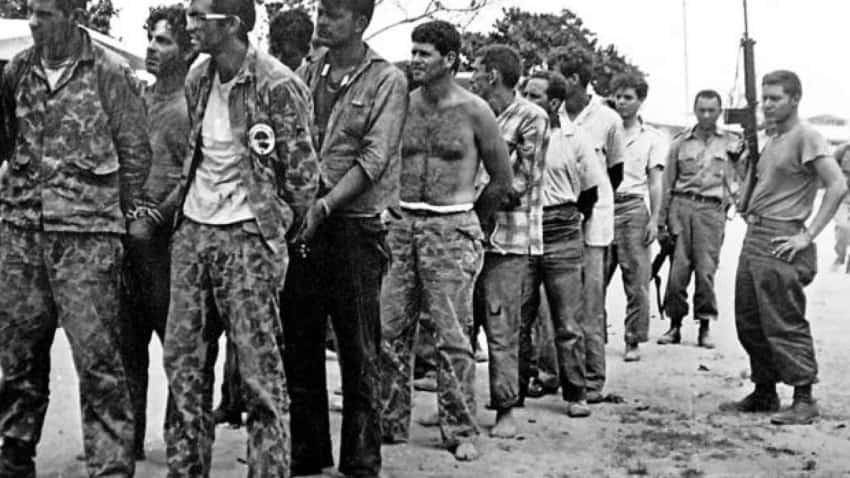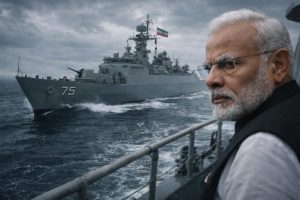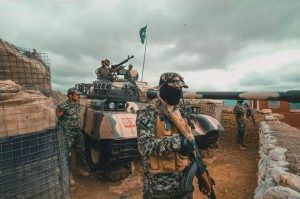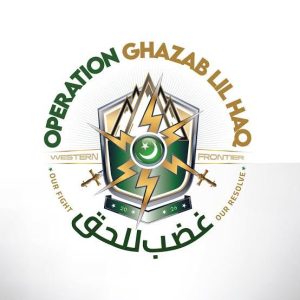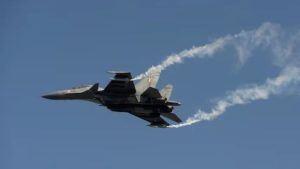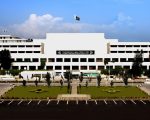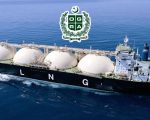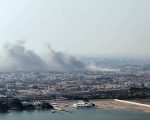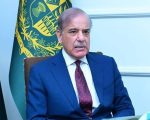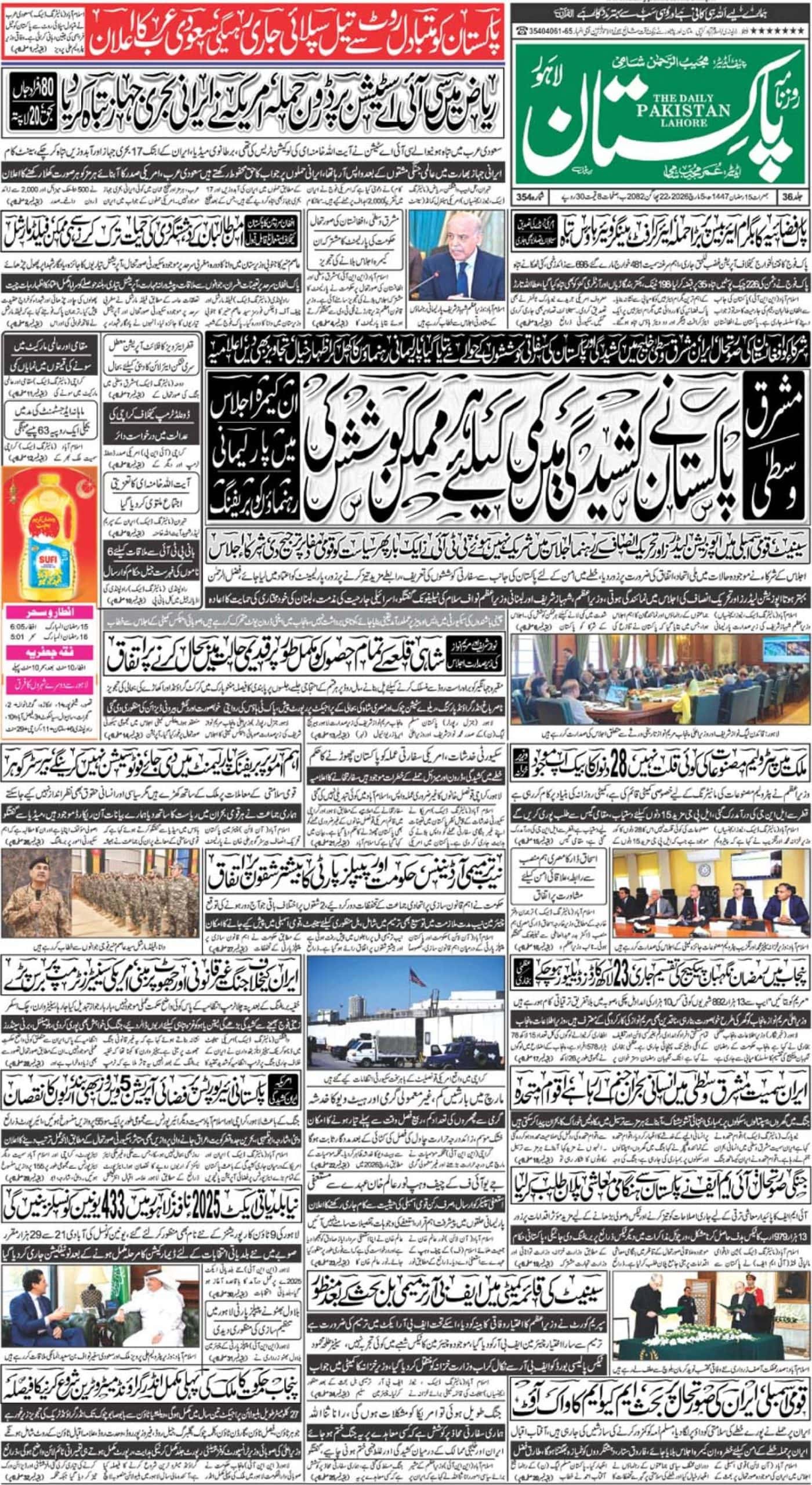(This article is a part of a much longer and comprehensive article on the JFK assassination)
It was in January 1959 that Fidel Castro assumed power in Cuba. John Swift described the situation the following words (History Review, March 2007, https://www.historytoday.com/john-swift/cuban-missile-crisis):
For America, Cuba provided a naval base at Guantanamo; it was an exotic, but conveniently close, tourist resort; and low paid Cuban labour made it an attractive investment area, much of the island’s agriculture and industry being American-owned. Hence governments in Washington had never hesitated to intervene to protect American interests. The problem was that Castro could never tackle desperate problems of poverty, ill-health and illiteracy without harming US interests. Indeed to Castro and a large proportion of the Cuban people, American domination was a root cause of Cuba’s problems, and it must be ended. Castro in fact articulated a widespread revulsion against this humiliating position. The United States was deeply detested on the island.
As American property was expropriated by the new government, Castro’s defeated enemies were treated mercilessly and elections were postponed while Castro secured his grip on power. Yet ever more vicious anti-American diatribes came from the new leader, his popularity in Cuba grew. In the United States, however, he became increasingly unacceptable. Eisenhower decided that Castro was a communist. Whether this was true then is debatable, but Castro was certainly to turn to communism in the face of US hostility.”
Cuba had been taken over by a revolutionary regime which was friendly with Moscow, had an anti-America rhetoric, wanted to export revolution to South American countries and seemed to disturb owners of American corporations. It was in 1960 that Eisenhower directed the setting up of a sort of army of Cuban exiles. These exiles were to be trained militarily and were to be used for toppling the Castro regime in Cuba. This policy was decided by Eisenhower when Allen Dulles was the CIA Director. The policy of arming and training Cuban exiles was an Eisenhower-Dulles policy which JFK simply inherited when he became President in January 1961.
On January 19, 1961, the outgoing President Gen. Eisenhower briefed the President-elect JFK. When, during the briefing, JFK raised the question of whether a coalition government in Laos including the communists would be better, Eisenhower responded by saying that a military victory was better. Eisenhower never thought of the possibility that the US might fail or be defeated in such a venture. JFK addressed the nation on January 20, 1961 and referred to the possibility of nuclear destruction in a war with the Soviet Union. He urged “that both sides begin anew the quest for peace, before the dark powers of destruction unleashed by science engulf humanity in planned or accidental self-destruction.” Time would tell that this was not empty rhetoric; JFK meant it and lost his life in his sincere attempts to end the East-West confrontation.
It was on March 23, 1961, that JFK announced at a press conference that the US “strongly and unreservedly” supported a “neutral and independent Laos” [4]. In doing so he had overruled the Joint Chiefs of Staff and the CIA headed by Allen Dulles. Thus almost two months into his Presidency JFK had overruled the powerful CIA Director and the Joint Chiefs of Staff – he had not endeared himself to the military-espionage leadership. The Joint Chiefs of Staff includes the Chiefs of Staff of the army, marine corps, navy and the air force and the Chairman Joint Chiefs of Staff.
In an attempt to get rid of Castro the CIA had planned an invasion of Cuba. This invasion by about 1500 CIA trained exiles began on April 15, 1961, and ended in complete failure by April 19, 1961. JFK had been in power less than three months at that time. The invading exiles were met by the Cuban army on April 17, led by Fidel Castro himself and about 1200 surrendered and were arrested; the others were probably all killed or some may have escaped. As the operation began to fail, the Pentagon and the CIA began pressuring JFK to send US combat forces to their help. JFK refused to do so. This was the Bay of Pigs fiasco.
There is clear evidence that although JFK had approved the Bay of Pigs invasion he had, very clearly, told the CIA and Pentagon leadership that he would not commit US troops to help the invasion. There is further evidence that Allen Dulles knew that the Russians as well as Castro knew of the planned invasion and that it was likely to fail without US armed intervention. Journalist Charles Bartlett was a close friend of JFK. Soon after JFK became President Bartlett was told by a Castro lobbyist (Talbot, Brothers: The Hidden History of the Kennedy Years, p 48): “The CIA is about to make a huge mistake. Terrible things are about to happen and Castro knows all about it.” Bartlett could have conveyed this to JFK at a White House party but he thought of not bothering JFK and instead took the information to Allen Dulles. This was a serious mistake. Dulles told him that he was not aware of anything about the matter! Dulles had lied. Talbot adds (p 48):
“Dulles clearly did not care whether Castro or his Soviet patrons knew the invasion was coming, because his agency regarded the band of Cuban exiles who were about to hit the beaches as mere cannon fodder, a device to trigger the real invasion by the U.S. military – one that would be so overwhelming it would quickly sweep aside any resistance. When this cynical calculation failed the CIA high command were stunned.”
It is very clear that CIA and the Pentagon did not take the President’s word, that he will not commit U.S. forces to back up the brigade of exiles, seriously. They thought that once the exiles were in trouble JFK would cave in to their pressure and they will have the U.S. military invasion they wanted. They were mistaken. A 300 page CIA memo internal report pertaining to the Bay of Pigs, that was released in 2005, confirms that the CIA went ahead despite knowing that without U.S. military support the brigade of exiles would be doomed. A November 15, 1960 CIA memo clearly stated that the objective of securing an airstrip on the Cuban beach “is now seen to be unachievable, except as joint Agency/DOD [CIA/Pentagon] action.” This bleak prospect was concealed by the CIA from JFK after he had assumed office. As one researcher puts it (Talbot pp 47-48): “The CIA knew that it couldn’t achieve this type of overt paramilitary mission without direct Pentagon participation – and committed that to paper and then went ahead and tried it anyway.”
It was not only the CIA that had deceived the new President. The military officers were also not scrupulous about their actions and conduct. The Navy Chief Admiral Burke had clearly violated JFK’s express orders to keep U.S. ships at least 50 miles away from the Cuban shores. Admiral Burke paid no heed to the President’s instruction and sent the aircraft carrier Essex as well as the helicopter landing ship Boxer close to Cuban shores. This was the level of insubordination of the CIA and the Pentagon which confronted JFK. President Kennedy was probably unaware of these deceptions and violations of his orders but he had sensed that he was being trapped into a wider war when he met with the Secretary of State, the Secretary of Defence, General Lyman Lemnitzer Chairman Joint Chiefs of Staff, Admiral Burke and Bissell, the CIA Deputy Director, at a hastily convened meeting shortly before midnight at the White House.
This meeting was to last almost three hours. Bissell presented the case for U.S. military involvement with Admiral Burke forcefully supporting him. The argument in favour of U.S. military involvement was simple – lives of Cuban exiles were on line and they would only be saved if the U.S. military intervened. Burke grew increasingly angry that night and when the President resisted, Burke finally asked for permission for one destroyer, the Essex to be sent there. He had already sent Essex close to the Cuban coast but had concealed it from the President. He wanted the Essex to knock the hell out of Catsro’s tanks. When JFK asked him what would happen if the Cubans returned fire and hit the Essex. “Then we will knock the hell out of them” responded a worked up Burke. JFK simply told him: “Burke I don’t want the United States involved in this.”
The top brass of the Pentagon and CIA had failed to move the President in this almost three-hour long meeting. During the meeting JFK told Bissell and Burke that he had told them “over and over again” that he would not involve U.S. combat forces to save the operation. Kennedy subsequently told Dave Powers: “They were sure I’d give in to them and send the go ahead order to Essex. They couldn’t believe that a new President like me wouldn’t panic and try to save his own face. Well, they had me figured all wrong.”
The failure of JFK to save the CIA backed brigade of exiles from being routed led to intense bad blood between the CIA leadership and JFK and further estranged him from the Joint Chiefs of Staff. Lemnitzer called the failure at Bay of Pigs as the greatest American defeat after 1812. This was a strange assessment. The U.S. combat forces were never formally involved so it was not a military defeat. A half-cooked CIA operation had failed and it had failed because the Pentagon and the CIA had been dishonest – they had ignored the President’s decision that the U.S. forces would not be involved to save the operation. Dulles told Nixon that the day JFK refused to militarily support the Cuban exiles was the “worst day of his life.”
John Kennedy had clearly sensed that the CIA had set a trap for him so that his goal for improved relations with the USSR could be destroyed. Further it would have brought a very bad name to the US and to JFK for having invaded a sovereign state which had rightfully met a CIA backed invasion with effective force. Notes written privately by Dulles, that became available after his death, confirm that the CIA had wished to trap JFK into a direct military involvement in Cuba. The note states (James W. Douglass: The Unspeakable, p 14):
“[We] did not want to raise these issues – in an [undecipherable word] discussion – which might harden the decision against the type of action we required. We felt that when the chips were down – when the crisis arose in reality, any action required for success would be authorized rather than permit the enterprise to fail”
The CIA had a plan to go ahead with the Bay of Pigs invasion in case JFK vetoed it. Four of the exiled Cubans who had a leadership role in the invasion subsequently old a writer Haynes Johnson that their handler “Frank” had clearly instructed them that in case the administration blocked the invasion (Douglass The Unspeakable, p 15): “they were to place an armed Brigade soldier at each American’s door, cut communications with the outside, and continue the training until he told them when, and how, to leave for Trampoline base [their assembly point in Nicaragua].”
Robert Kennedy called this “virtually treason” when he learned about it. The CIA and the Pentagon also violated Kennedy’s orders in another way. JFK had very clearly told them that no American soldiers would be involved. It transpired later that the first two invaders to land on Cuban soil were Americans! They had disobeyed the President’s instructions. A deeply disturbing and shocking violation of the Presidential orders has been provided by Donald Gibson (Battling Wall Street: The Kennedy Presidency, p 45). He writes: “As was later discovered by Kennedy, Bissell had disobeyed his direct orders and used American pilots (four of whom were killed) at the Bay of Pigs.”
Some of the most astonishing pieces of information pertaining to the Bay of Pigs fiasco has been provided by Col. Fletcher Prouty in his book JFK: The CIA, Vietnam and the Plot to Assassinate John F. Kennedy. Col. Prouty was posted in the White House from 1954-1963 and served as Chief of Special Operations for the Joint Chiefs of Staff for President Kennedy and had seen many things from very close quarters [see chapter 9 for Bay of Pigs]. Col. Prouty points that on the day of invasion Allen Dulles, the man who conceived the Cuban project, and headed the CIA, was mysteriously out of the country? Why? He was addressing a group of young business men abroad! His absence created serious problems when the invasion began to fail because there was no one to take his place and take decisions with the same authority that he had.
Col. Prouty further reveals that the success of the Bay of Pigs invasion hinged on one crucial factor – the Cuban Air Force had to be destroyed completely. Of the 10 battle-ready aircraft Castro’s Air Force possessed, 7 had been destroyed in a bombing raid conducted by exiles in WW II modified B-26 bombers provided by the CIA. This raid took place on April 15, two days before the landing. The three remaining aircraft had been flown to a small base in the Santiago area. These had been spotted by a U2 flight and it had been planned to destroy these three in a similar bombing raid before the landing. According to Col. Prouty JFK had approved the bombing raid by four B 26’s to destroy these three aircraft on Sunday April 16 at 1.45 pm. The bombers were to strike at dawn on Monday April 17. Col. Prouty narrates that at 1.00 AM in the night in early hours of April 17, he received a call from Nicaragua, from where the bombers were to take off.
The caller was the CIA commander at Peurto Cabezas who was very upset because the bombing raid had been called off. Who ordered it? The orders of the President had been set aside by Deputy Director CIA General Cabell! Prouty could hear the plane engines in the background. Prouty writes that he could not get through to Cabell and so the B 26 bombes could not take off. Therefore, the three T 33s possessed by the Castro Air Force remained intact. They played havoc with the invading forces and also were able to bring own 16 B26s which are slow moving aircraft. This was why the Cuban invasion had failed. The burden of this defeat fell on JFK’s shoulder.
In fact, as Col. Prouty narrates, he called the relevant office of the CIA and urged them to release the B-26s “on Kennedy’s orders” in order to avoid failure of the operation. CIA’s tactical commander told him that the matter was “in the hands of” McGeorge Bundy, General Cabell and Secretary of State Dean Rusk [ Prouty pp 130, 131].
So when the President had approved the bombing why was it stalled at the last minute? Prouty writes [p 132]: “The failure has been erroneously blamed on President Kennedy for three decades in contrived stories, some of which appear to have a bearing on the overall assassination story.”
Why did General Cabell cancel the bombing raid approved by JFK? Why did Cabell expose JFK to global embarrassment? Cabell could not have called it off without a prior go ahead from Dulles. Why was Dulles so conveniently away? To address a bunch of young businessmen was not something that could not be called off. And why did the date of his address coincide or overlap with the Cuban invasion date? Dulles was an agent of the international banking families that were unhappy with JFK’s victory. They wanted Nixon in power, so as to be able to proceed towards the military conflict in Vietnam and to reap the profits of war in addition to engaging in genocide. The public story circulated by the CIA was that JFK had not allowed the bombers to help the stranded forces, when, in fact, JFK had ordered that the exiles use the bombers to destroy Castro’s remaining T 33s. What he had not allowed, and what could not be legally allowed, was the use of the US military planes. But a twist was put on the entire thing until 33 years later Col. Prouty cleared it. By then a lot of water had flowed under the bridge.
The CIA misjudged Kennedy. John Kennedy was a very well read man, an intellectual, an avid and a discriminating reader who could stand his ground. He was able, very quickly, to get to the bottom of the matter. As Prouty puts it [ pp 164, 165]: “The President was therefore faced with a fait accompli before he had an opportunity to make a decision. Even then Kennedy knew he had been had, and it did not take him long to confirm it.” And, JFK had not evaded military service like George Bush and Dick Cheney and some other neocons of later years; he had been involved in actual combat and had lost a brother in WW II. He told his adviser Arthur M. Schlesinger, Jr. that: “It’s a hell of a way to learn things, but I have learned one thing from this business – that is we will have to deal with CIA . . . no one has dealt with CIA.” So he began by taking away the military operations from the CIA through NSAM 55 (National Security Action Memorandum 55). Col. Fletcher L. Prouty, who was the briefing officer to the President at that time, states (Douglass, The Unspeakable, p 16):
“I can’t overemphasis the shock – not simply the words – that this procedure caused in Washington: to the Secretary of State, to the Secretary of Defence, and particularly to the Director of Central Intelligence. Because Allen Dulles, who was still the Director, had just lived through the shambles of the Bay of Pigs and now he finds out that what Kennedy does as a result of this is to say that ‘you, General Lemnitzer, are to be my Adviser’. In other words, I’m not going to depend on Allen Dulles and the CIA.”
As a next step Kennedy asked for the resignation of the three principal CIA officers who had been responsible for the Bay of Pigs fiasco. The three men were Allen Dulles, the CIA Director, Deputy Director Richard Bissell, Jr. and Deputy Director General Charles Cabell. Dulles ceased to be Director Central Intelligence on November 30, 1961. Dulles was deeply entrenched in the espionage world and had the deepest ties with the international banking families, that had brought about the two assiduously and ruthlessly pre-planned World Wars. Allen Dulles was a founding member of the Council on Foreign Relations (CFR) and a director of CFR from 1927-1969, clearly indicating his profound and loyal relationship with the international-banking Elite.
The CFR had been established in the aftermath of WW II by the Rothschilds and was the American arm of the Royal Institute of International Affairs (RIIA), the deeper Rothschild “think tank.” The loyalty bond between Allen Dulles and the international-bankers was sealed by the fact that Allen Dulles was a 33rd degree Freemason. His brother John Foster Dulles joined the CFR in the 1930s. Both brothers were present at the 1919 Paris “Peace” Conference. Allen Dulles and his brother John Foster Dulles practically ran their own foreign policy under the directions of the international-banking Elite, the group referred to by Churchill as the “High Cabal”. Sullivan and Cromwell, the Wall Street law firm owned by the two brothers not only represented powerful Wall Street entities but also represented the Schroder Bank that bankrolled the rise of Hitler. In fact, Allen Dulles was present in a meeting held at the Schroder Bank headquarters in Berlin on January 4, 1933, where Hitler met industrialists and bankers and where it was decided to install Hitler in power on the condition that he break the power of the trade unions. Hitler came to power on January 30, 1933.
Bissell had studied at Yale and the London School of Economics. Yale is known for being entwined with espionage, secret societies and drug trafficking whereas the LSE was set up to produce the bureaucracy for the New World Order. Bissell is said to have refused an offer to become a member of the Skull and Bones secret society; his brother became a member. He was picked up by Averell Harriman, another Skull and Bones member, for a post war reconstruction job. Bissell also worked with Ford Foundation, until persuaded by Frank Wisner, the grandmaster of CIA, to join the agency. Such positions are usually offered to those who are willing to work for the New World Order agenda. Therefore, the connection of Bissell with the secret society international banking network was quite deep. Andrew Gavin Marshall has stated that Bissell had also worked for the OSS.
General Cabell came from Dallas, Texas, where he was born in 1903. His brother Earl Cabell was the mayor of Dallas when JFK was shot dead in Dallas. General Cabell had openly called JFK a traitor. Dallas police officer Jack Rivell accompanied mayor Cabell on a flight to Washington D.C, after the assassination of President Kennedy. Rivell has stated that they went to the home of General Cabell, which, on the day of JFK’s funeral, was “filled with high profile people and three striped generals who watched the funeral in an upbeat atmosphere”. (http://www.jfkmurdersolved.com/cast.htm; Cast of characters). This was the same General Cabell who had mysteriously called off the bombing mission of the Cuban exiles so that the Bay of Pigs invasion could fail. No wonder he and his friends were upbeat. He was almost certainly involved in planning the assassination.
As a result of the Bay of Pigs fiasco JFK moved further to cut down the CIA budget in 1962 as well as in 1963 with an aim of reducing it by 20% in 1966. JFK was so infuriated by the betrayal of the CIA that he said that he will [20] “splinter the CIA into a thousand pieces and scatter it to the winds.” CIA and the President were at war and the Pentagon was with the CIA. JFK was young and idealistic and the CIA and Pentagon were dominated by men who were cold warriors trained in the arts of deception, and for them human lives did not matter. Their ruthless masters owned the Wall Street.
Allen Dulles, the powerful CIA Director, with the deepest ties with the High Cabal, had been sacked by JFK. This was unthinkable. In his recent book The Devil’s Chessboard, David Talbot writes (p 9):
“But Dulles was not a rash man; he was coldly calculating. As the chairman of cloak-and-dagger America, he would never initiate a high-stakes operation unless he felt he had the support of the principal members of his “board” – the Washington and Wall Street men of influence who quietly dominated the nation’s decision-making.”
Given the long-standing relation of Allen Dulles with the international-bankers, what this statement means is that without approval from the international-banker families (Rothschilds, Rockefellers, Warburgs, etc.) such a step as the JFK assassination could not have been taken. In his remarkable book Col. Fletcher Prouty has mentioned the “High Cabal” of Churchill and the relation of Dulles with this Cabal (L. Fletcher Prouty: JFK: The CIA, Vietnam, and the Plot to Assassinate John F. Kennedy, p 56)
“These are incredible men, these defiers of presidents. One might say they do not need them. Ambassador George V. Allen, after a state dinner with John Foster Dulles, said, ‘Dulles spoke as if he had his own line to God and was getting his instructions from a very high source.’ Allen Dulles was also a lawyer . . . The brothers were in touch with the power elite, and a mere president influenced them not at all.”
Members of the international-banker families are among the top ten stock holders of each of the top 500 corporations of the world as has been established by Dean Henderson. Therefore, these families own and control Wall Street. That they also deeply influence Washington in important matters is established by Nomi Prins in her 2007 book All the President’s Bankers where she has established that since 1907 these bankers have had regular contact with every American President and exercise influence on foreign policy and other matters. Paul Craig Roberts wrote the following about this book: “In this riveting, definitive history, Nomi Prins reveals how US policy has been largely dominated by a circle of the same banking and political dynasties.”
The international bankers were the key element among the planners of the two world wars. These banking families were behind the Russian Revolution and, as has been established meticulously by men like Antony Sutton and others, provided tens of millions of dollars during WWI to bring down the Russian monarchy. These families manoeuvred to deliberately prolong WWI to achieve the destruction of the Russian, Prussian, Austro-Hungarian and Ottoman empires, and to pave the way for the creation of the Rothschild outpost in the Middle East, Israel. The second World War enabled the creation of the UN, an important step towards One World Government, and begot Israel. In addition, the Bretton-Woods “agreement” allowed them to set up the IMF and the World Bank, tools of global impoverishment and debt bondage. At Bretton Woods the dollar was declared the currency of international trade. The dollar is printed by the Federal Reserve and these very same international banking families own the Federal Reserve and thus control the money line of the US.
These families and their allies do not allow any deviation from their program. They want to maintain mankind in a state of perpetual conflict, bloodshed, and confusion, until they are in a position to impose their Order on a battered and broken humanity. Peaceful coexistence will destroy their program so any one in the White House who stands for peaceful coexistence must be eliminated.

